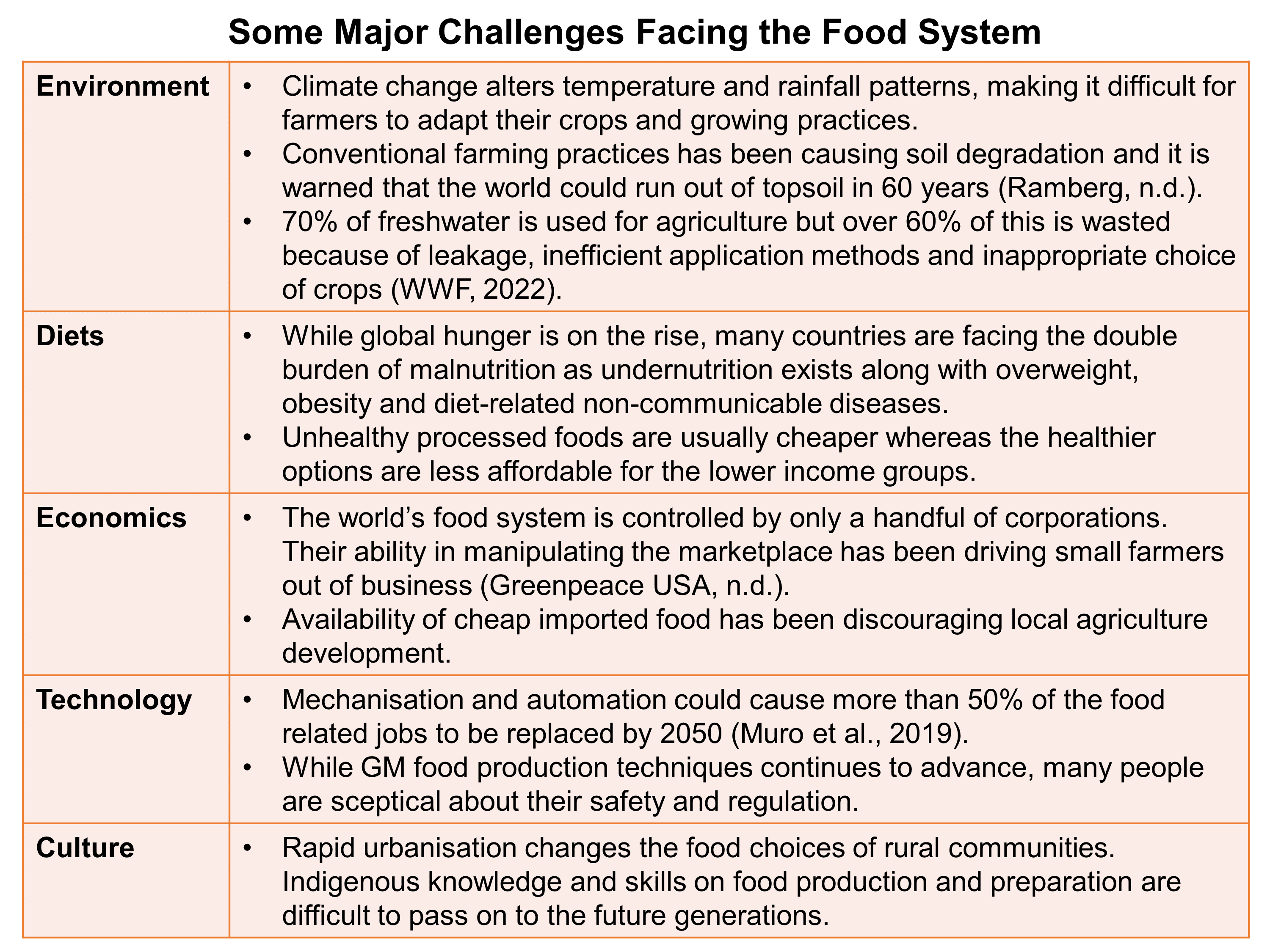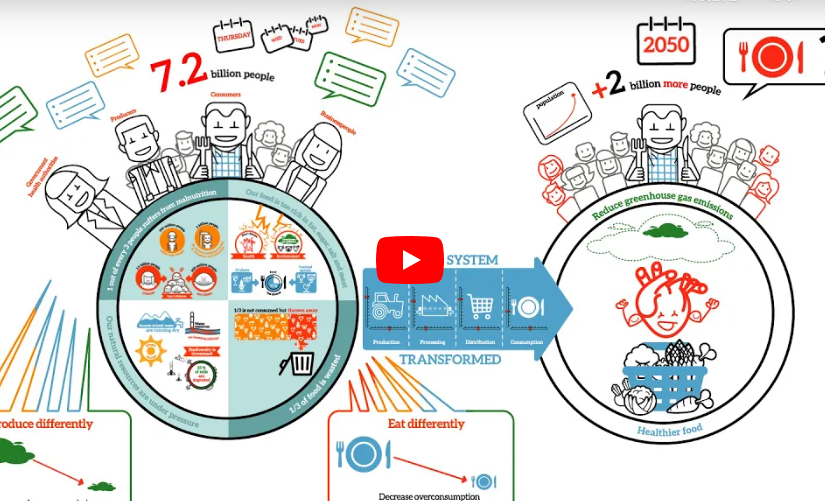Home » Session 1: Current Situation and Issues – Why do we Need Sustainable Urban Food Systems
Sustainable Urban Food Systems and a Collaborative Initiative in Hong Kong
Session 1: Current Situation and Issues – Why do we Need Sustainable Urban Food Systems
Food is a necessity for all and it is also an essential part of human’s culture and has closely tied mankind with nature through the provision of food ingredients. The processes and practices of growing, preparing and consuming food have also created social value and economic opportunities. And yet, the world is facing a lot of food challenges. There are about 800 million people suffering from hunger, 2 billion people with malnutrition, and 1.9 billion people overweight or obese (UN Environment Programme, 2016). Food production and wastage is resulting in environmental stress. Farmers earn far less than other stakeholders on the food production line.

55% of the world’s population now lives in urban areas and almost 80% of all food produced globally are consumed in urban areas (FAO, 2019). As many cities rely heavily on imported food, citizens knows little about the food source, and food security may be threatened in times of diseases and natural disasters. Cities are thus an important venue for addressing food related challenges.
To deal with the complex food issues which often go beyond individual discipline and institutional boundaries, it is essential to adopt the food system approach which holistically takes into account all stages involved, from farm to fork. The entire process should be profitable, beneficial to the society and friendly to the environment.
This short video of the United Nations Environment Programme introduces the major food issues of today and the need for a transformation of our food system.

Read more:
FAO. (2019, February 19). Tackling food insecurity at the urban level - turning global commitments into local realities. Retrieved from http://www.fao.org/news/story/en/item/1181196/icode/
Greenpeace USA. (n.d.). Corporate Control of Our Food. Retrieved from https://www.greenpeace.org/usa/sustainable-agriculture/issues/corporate-control/
Muro, M., Maxim, R. & Whiton, J. (2019). Automation and Artificial Intelligence: How Machines are Affecting People and Places. Retrieved from https://www.brookings.edu/wp-content/uploads/2019/01/2019.01_BrookingsMetro_Automation-AI_Report_Muro-Maxim-Whiton-FINAL-version.pdf
Ramberg, J. (n.d.). Can we feed 10 billion people without destroying the environment? BBC. Retrieved from https://www.bbc.com/future/bespoke/follow-the-food/how-to-fix-our-broken-food-system.html
WWF. (2022). Water Scarcity Overview. Retrieved from https://www.worldwildlife.org/threats/water-scarcity
Continue to “Session 2: Principles for Sustainable Food Systems”
© 2019 Centre for Civil Society and Governance at The University of Hong Kong
Except where otherwise noted, contents of this e-case is licensed under a Creative Commons Attribution-NonCommercial-ShareAlike 4.0 License.
![]()


